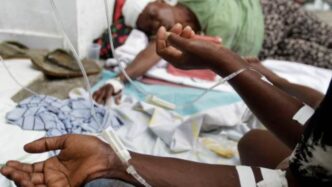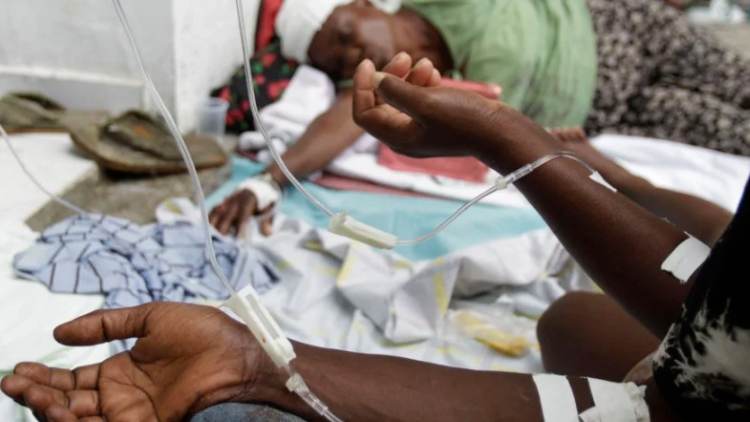Sudan’s health ministry on Tuesday reported a sharp surge in cholera cases, with 2,700 infections and 172 deaths recorded in just one week in the conflict-ravaged country.
In its statement, the ministry revealed that “90 per cent of cases were reported in Khartoum state,” where both water and electricity supplies have been severely disrupted following drone strikes attributed to the Rapid Support Forces (RSF), which has been engaged in conflict with the army since April 2023.
Additional cholera cases have also emerged in the south, centre, and north of Sudan.
Although cholera is endemic in Sudan, the ongoing war has drastically worsened the frequency and severity of outbreaks by decimating the country’s already fragile health, water, and sanitation infrastructure.
Just last Tuesday, the ministry had reported “51 people had died of cholera out of more than 2,300 reported cases over the past three weeks, 90 per cent of them in Khartoum state.”
Earlier this month, the RSF launched a series of drone strikes across Khartoum, targeting three power stations, before being forced out of their final strongholds in the capital. These attacks cut off the electricity grid, which in turn disabled the local water supply, according to Doctors Without Borders (MSF), pushing residents to rely on unsafe water sources.
“Water treatment stations no longer have electricity and cannot provide clean water from the Nile,” Slaymen Ammar, MSF’s medical coordinator in Khartoum, said in a statement.
Cholera, a deadly diarrhoeal disease transmitted through contaminated food or water, can kill within hours if left untreated. However, it is easily preventable and treatable with access to clean water, proper sanitation, and prompt medical attention.
According to the World Health Organization, Sudan’s healthcare system has been pushed to the “breaking point” by the war.
As noted by the doctors’ union, up to 90 per cent of the country’s hospitals have at some point been forced to close due to ongoing conflict, with health facilities repeatedly stormed, bombed, and looted.
The war, now in its third year, has killed tens of thousands, displaced 13 million people, and led to what is now considered the world’s largest displacement and hunger crisis.




